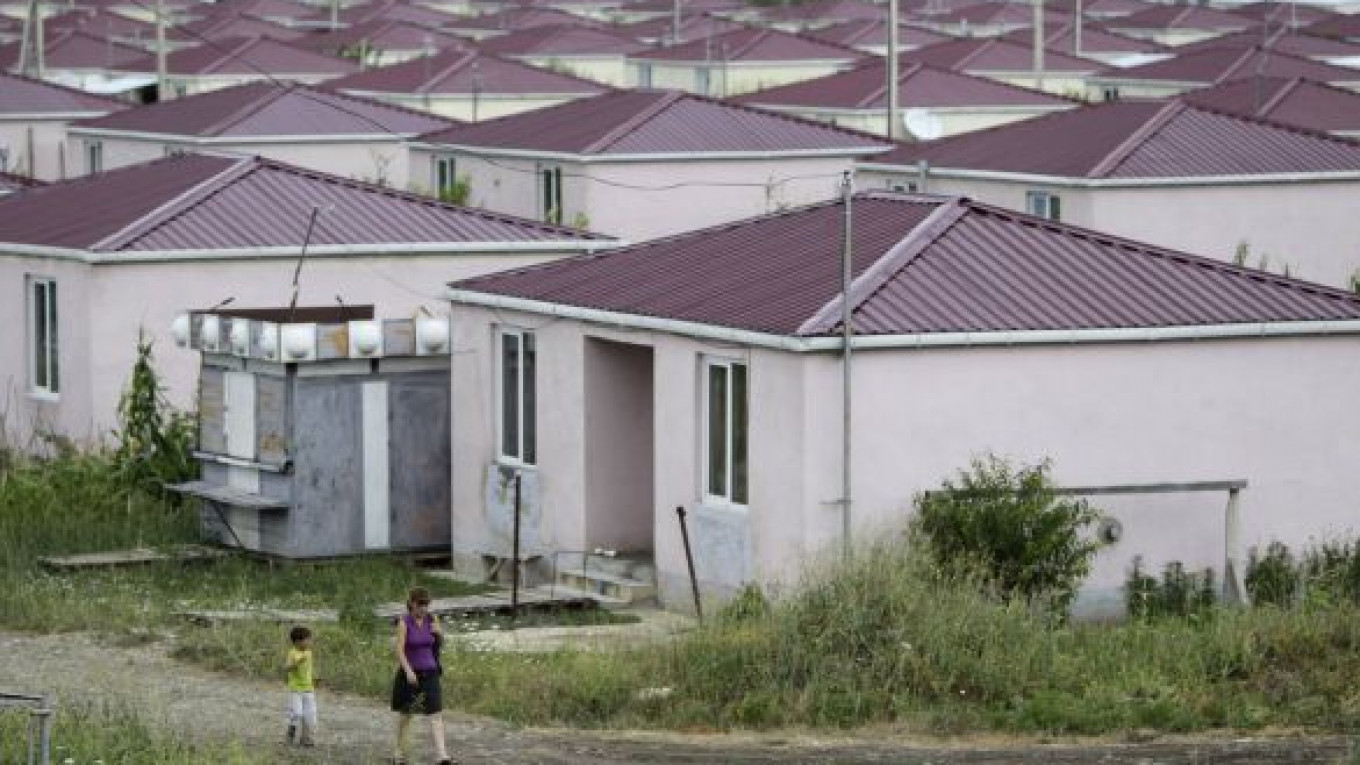TBILISI — Rights watchdog Amnesty International urged Georgia on Friday to halt the forced eviction of refugees from the capital, warning that for many the policy amounted to fresh displacement.
The evictions, which began in mid-2010, are the latest attempt to tackle a massive refugee problem stemming from conflicts in the early 1990s in the rebel Georgian regions of Abkhazia and South Ossetia, and again in 2008 when Russia and Georgia fought a five-day war.
Though mainly relocated to better-quality apartments, many of those evicted say they were given little prior notice and face building a new life in the countryside, cut off from support networks built up over almost two decades and the means to earn a living.
"In their drive to empty temporary housing shelters in the capital and provide displaced people with durable housing, the Georgian authorities have ignored essential protections for those evicted and estranged many from established support networks and livelihoods," said Natalia Nozadze, Amnesty International's Georgia researcher.
"The authorities have added to their sense of insecurity by evicting them without adequate consultation, notice or access to legal remedies."
The watchdog's report warned that the evictions were in violation of Georgia's obligations under international human rights law.
Georgia's ministry for refugees could not be reached for comment.
The government has in the past denied being heavy-handed, saying all refugees were warned in advance and have been offered better-quality homes.
Under President Mikheil Saakashvili, it has won plaudits for developing a national strategy to cope with the more than 200,000 people displaced from their homes by war.
But rights groups argue that the eviction of refugees from old hospitals, barracks and printing houses in Tbilisi — their homes for almost two decades — has been poorly handled, sparking protests.
The United Nations refugee agency last year expressed concern over the transparency of the refugee relocation process and the lack of information.
A Message from The Moscow Times:
Dear readers,
We are facing unprecedented challenges. Russia's Prosecutor General's Office has designated The Moscow Times as an "undesirable" organization, criminalizing our work and putting our staff at risk of prosecution. This follows our earlier unjust labeling as a "foreign agent."
These actions are direct attempts to silence independent journalism in Russia. The authorities claim our work "discredits the decisions of the Russian leadership." We see things differently: we strive to provide accurate, unbiased reporting on Russia.
We, the journalists of The Moscow Times, refuse to be silenced. But to continue our work, we need your help.
Your support, no matter how small, makes a world of difference. If you can, please support us monthly starting from just $2. It's quick to set up, and every contribution makes a significant impact.
By supporting The Moscow Times, you're defending open, independent journalism in the face of repression. Thank you for standing with us.
Remind me later.






